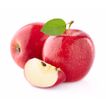Find articles on products of interest

China Fresh Apple insights
Unlock the latest China Fresh Apple Insights with expert news and analysis to stay ahead of market trends and capitalize on emerging opportunities.
Explore Insights filtered by market country
1396 content(s) found
Opinion
Explore insights from our global team of market analysts on trending China Fresh Apple topics through their expert opinions and analyses.
On-the-Ground Updates
Stay updated with near real-time insights on market conditions, supply chain disruptions, and pricing changes for China Fresh Apple, delivered by our on-site experts.
News
Monitor the latest developments in agricultural news, including policy updates, business trends, technological innovations, and market dynamics impacting the China Fresh Apple market.
Weekly Product Updates
Receive exclusive weekly updates on China Fresh Apple, provided by our global market analysts.
Report
Download premium reports that highlight major trends, emerging opportunities, and critical challenges within the China Fresh Apple industry.

Trending topics
Choose a topic to explore related articles on key issues that shape decision-making in the China Fresh Apple industry.

Market & Price Trends
Stay informed on local and global agricultural market trends, price movements, and industry events that affect your business

Regulation & Compliances
Learn about key trade policies, legal requirements, and compliance considerations that impact global agricultural trade

Sustainability & Environmental Impact
Gain insights into sustainable agricultural practices and explore the best methods to minimize environmental impact in your agribusiness

Innovation & Technology
Discover how the latest innovations in technology are reshaping agri-food supply chains around the world

Supply Chain Management
Discover proven strategies to improve efficiency, reduce costs, and streamline operations throughtout your agri-food supply chain

Emerging Market Opportunities
Be the first to explore new market opportunities and understand how they can affect your agribusiness

Food Safety & Quality
Learn the top global practices for food safety and quality control from production and processing to storage and transport across the supply chain
Related categories of Fresh Apple
Take a look at the related categories for China Fresh Apple. Click on any category to read a curated selection of insights specifically designed to address your business needs.
Market countries of Fresh Apple
Choose a country to find Fresh Apple insights of the country.
Popular Fresh Apple selection
Interested in China Fresh Apple? Explore the top attributes and options to gain deeper insights into your product of interest.
Variety
Golden Delicious | Gala | Fuji | Granny Smith | Cripps Pink (=Pink Lady) | Gala - Royal Gala | Idared | Jonagold | Braeburn | Red Delicious (=Sundowner)
Processed style
Fresh (=Chilled) | Dried | Frozen | Frozen - IQF (=Individual Quick Freezing) | Dried - FD (Freeze Drying) | Pasteurized | mere uscate | Dried - SD (Spray Drying) | Pickled | Frozen - BQF (=Block Quick Freezing)
Color
Red | Green | Mixed | Golden | Yellow | Rich Red | Reddish Yellow | Vivid Red | Yellowish | Orange Red
By clicking “Accept Cookies,” I agree to provide cookies for statistical and personalized preference purposes. To learn more about our cookies, please read our Privacy Policy.


















